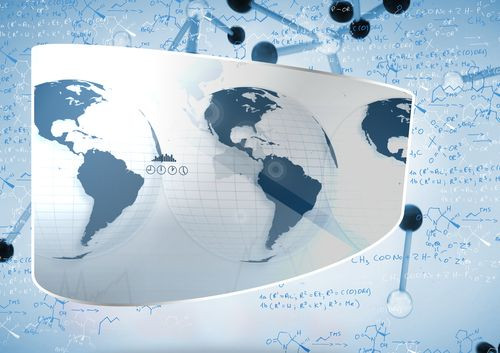What Technology Is Revolutionizing Cancer Treatment? The Same One That Is Changing The World

What are the most tomorrow technologies in the field of cancer medicine? The first thought that comes to mind for many people would be personalized medicine, while others would immediately champion nanotechnology. Yet underlying both these revolutionary fields is the new technology that has been made possible by the startling advances in genomic sequencing: synthetic biology. Scientists are beginning to design DNA molecules, proteins, and complex genetic circuits — biological organisms.
How is this possible? All life is based on the same genetic code, DNA, made up of four chemical bases: adenine (A), guanine (G), cytosine (C), and thymine (T). For some time now, scientists have been changing the genetics of organisms in relatively simple and crude ways — think genetically modified food — by altering, say, just one gene. But in 2010, scientists created the first synthetic cell in which the DNA of an entire biological system was created in the manner of a software engineer writing computer code. According to J. Craig Venter, who led a private effort to map the human genome, this is the dawn of the era of biological design, with scientists soon able to revise the DNA of living creatures, including ourselves, at will. With this new capability, then, any desired function, such as virus-immunity, can be built into a biological entity. In fact, synthetic biologists envision revising the genetic code to change how we produce everything from chemicals to fuel, all of which will ultimately impact medicine.
Current cancer therapies, including most forms of chemotherapy, attack malignant cells and healthy tissue alike. A synthetically-engineered virus, though, would be able to limit its activity to cancer cells. In one demonstration of synthetic biology applied to cancer therapy, a team of scientists developed bacteria that linked their ability to invade a cell to environmental signals specific to the tumor. Other emerging applications use live bacteria as delivery systems, in which scientists design specific strains that can deliver proteins into the nucleus of a cell and swap-out its existing DNA.
Meanwhile, some synthetic biologists are focusing more on the ground principles that drive natural biological processes, such as molecular self-assembly — the process by which a structure adopts a defined arrangement without guidance from an outside source. Knowledge of this process makes it conceivable that scientists might someday program a nanostructure to self-assemble into medical devices after being injected into the body. Or scientists might create nanostructures to carry drug molecules directly to diseased cells. “Research in synthetic biology may lead to new things such as programmed cells that self-assemble at the sites of disease to repair damage,” Venter told Wired last year. Just as computers once altered the way most of us live and function in the current world, synthetic biology will surely change our existence as dramatically.



























